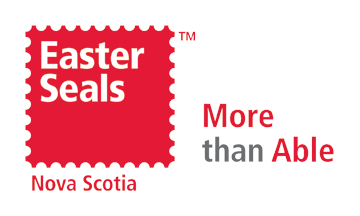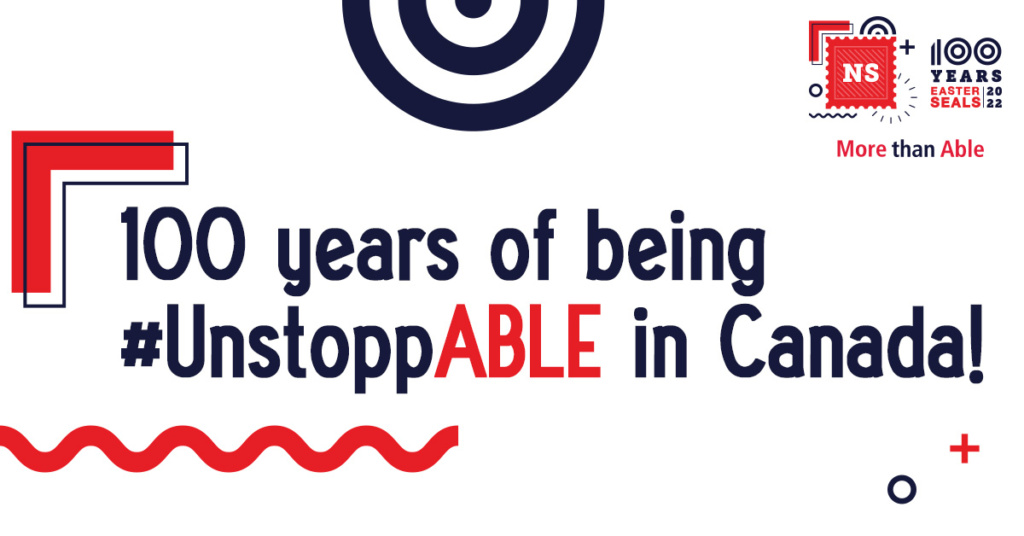
2022 is a big year for Easter Seals in Canada as we are celebrating 100 years of impact and being UnstoppABLE in Canada!
Our History in Canada
In Canada, Easter Seals is a group of charitable organizations which provide opportunities for children, youth, adults and seniors with physical and/or cognitive disabilities. In Canada Easter Seals was founded in 1922 by a group of ten Rotary Clubs, seeking to emulate the success of the American Easter Seals program.
The first national Easter “Seal” was issued in 1949 with such an overwhelming response that the organization formally adopted the name “Easter Seals.” Today independently governed organizations in each province provide programs and services to over 40,000 children and families.
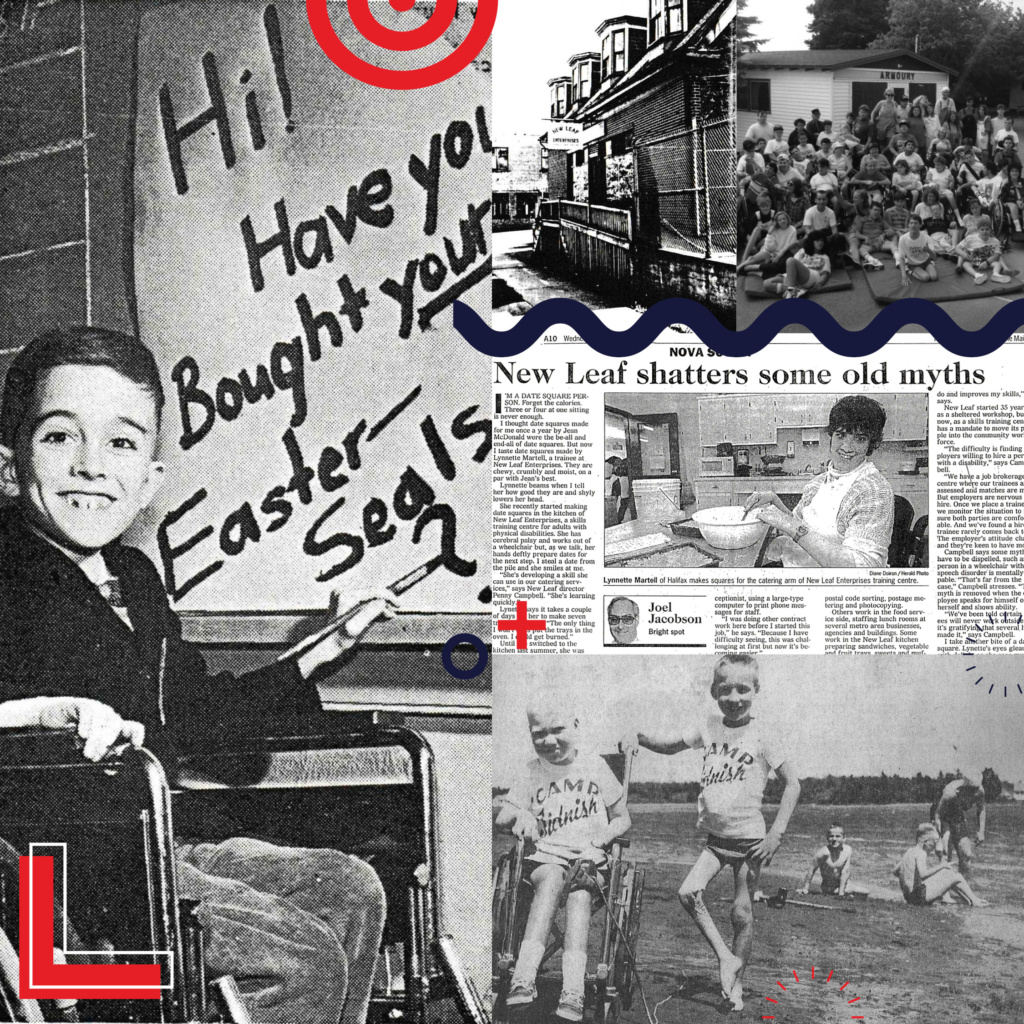
Our History in Nova Scotia
At Easter Seals Nova Scotia we envision a world where everyone is included and have been providing individualized solutions to support inclusion and empower persons with disabilities for over 90 years. We are a primary destination for those seeking information, support, mobility equipment, recreation programs and skills development opportunities. We advocate for a barrier-free Nova Scotia and provide top-quality services promoting mobility, inclusion and independence for Nova Scotians with disabilities. Our vision is a world where everyone is included.
The organization was first incorporated in Nova Scotia in 1931, going through a number of name changes before becoming Easter Seals Nova Scotia in September 2009. Currently, Easter Seals Nova Scotia is made up of four Pillar Programs including Assisted Mobility, Camp Tidnish, New Leaf Enterprises and Take PART.

Highlights From Over 90 Years of Easter Seals in Nova Scotia
March 24, 1931 – Easter Seals is incorporated in Nova Scotia as the Nova Scotia Society for the Care of Crippled Children
1937 – The Rotary Club of Amherst opens Camp Tidnish, the only barrier-free and fully accessible summer camp for Nova Scotian children, youth and adults with physical and/or cognitive disabilities.
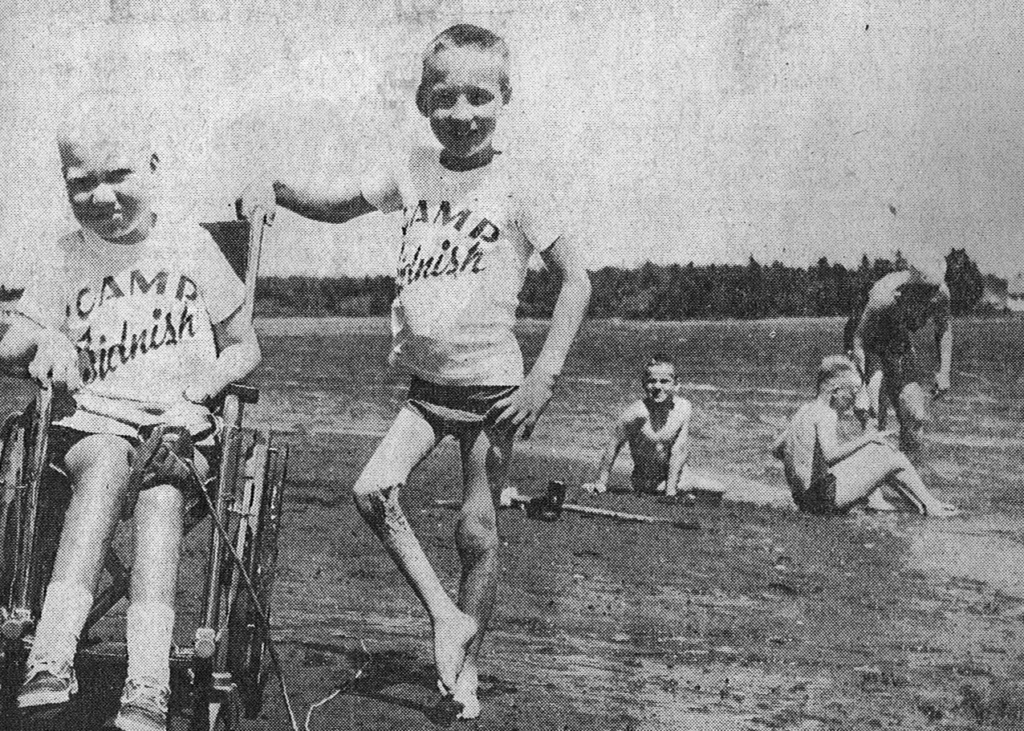
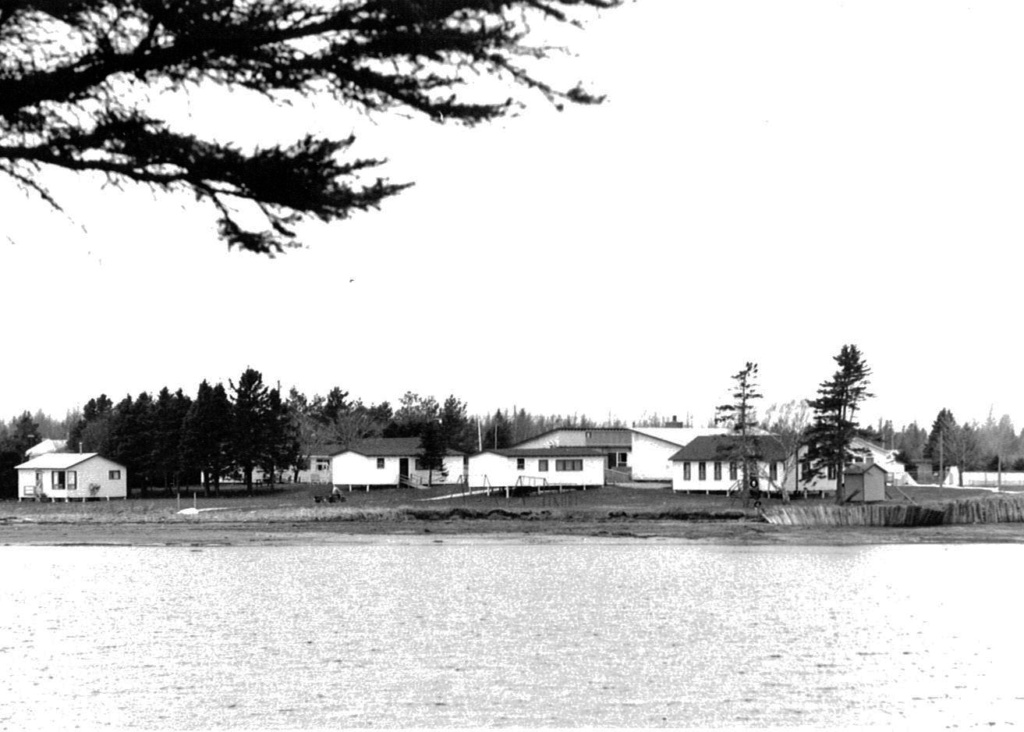
1949 – A national letter seal is developed to sell at Easter as a way to raise money. These ‘seals’ were first sold that year in Nova Scotia by the Rotary Club of Sydney.
1952 – The first province-wide sale of the ‘Easter Seals’ was established.
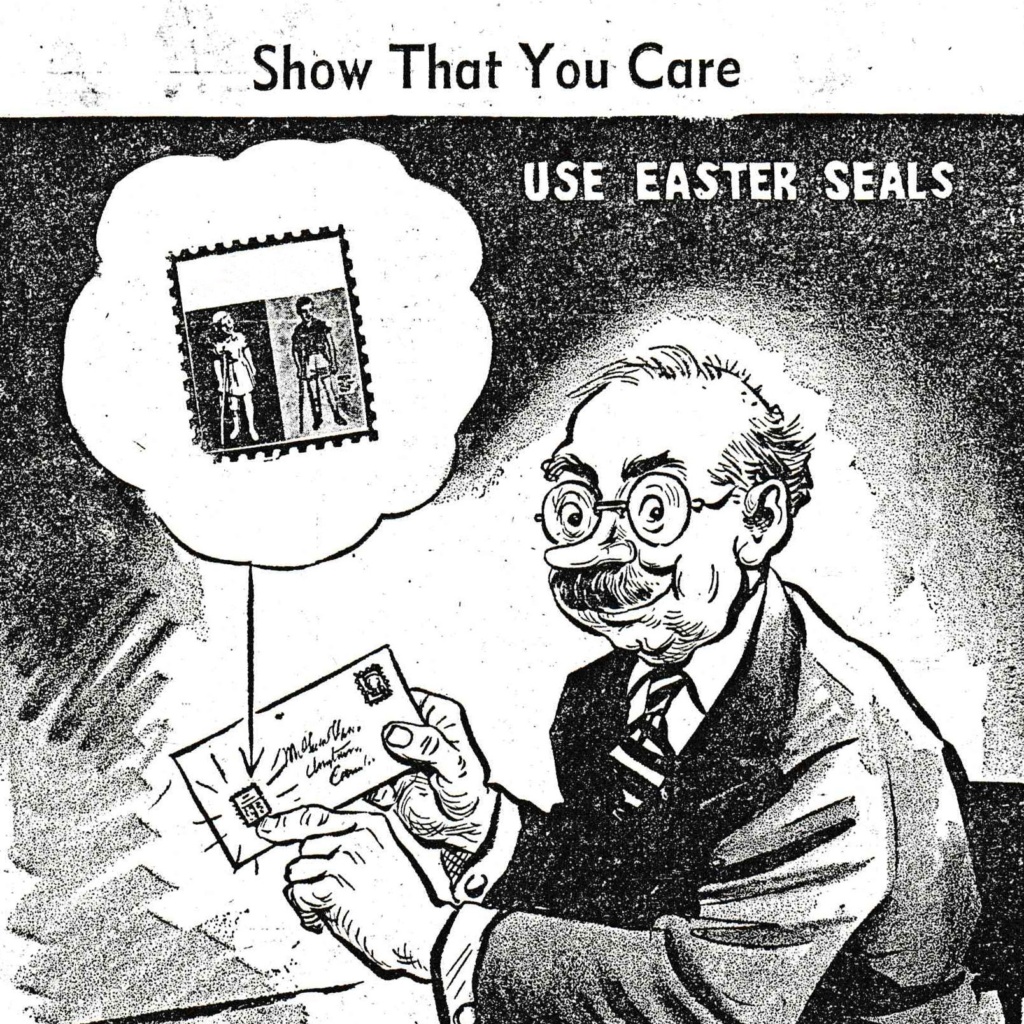

1957 – The organization introduced a Mobile Medical Clinic program. Medical specialists would travel to communities across the province, providing cost-effective medical assessment and treatment to children with disabilities.
1960 – New Leaf, a small, volunteer-run day program for adults with disabilities joins the organization to become the social enterprise arm which provides opportunities for adults with disabilities to participate in skills development, workplace training and business services to the community.
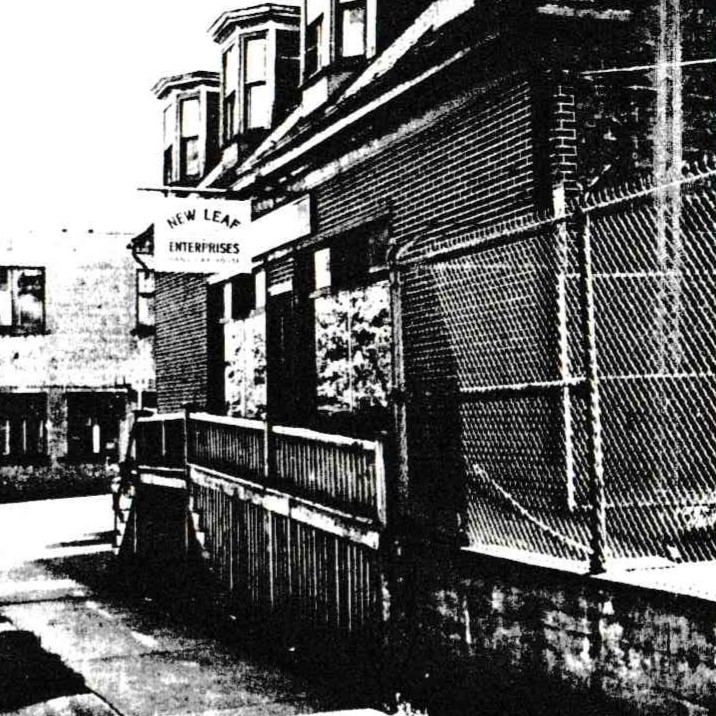
1964 – The organization joins forces with The Canadian Foundation for Poliomyelitis and Rehabilitation to become The Canadian Rehabilitation Council for the Disabled (CRCD) – Nova Scotia Chapter. (The first official name change)
1969 – By 1969, in its first nine years of operation, more than 300 Nova Scotians living with disabilities had been assisted by New Leaf Enterprises.
1970 – Camp Tidnish expands its clientele and started accepting adults with disabilities to the Camp Tidnish program.
1971 – In February 1971 New Leaf Enterprises introduced their Ceramics program where clients made and were involved in every step of the ceramics-making process. In 1978, clients sold 1,400 to 1,600 ceramic angel ornaments as part of their “Be an Angel, Buy an Angel” initiative in December.
1977 – 5,000 consultations were held in 18 communities across Nova Scotia by the Mobile Medical Clinic Program.
1985 – The CRCD changes its name to The Abilities Foundation to more positively highlight the abilities of the individuals the organization serves.
1986 – Established in 1978 in Burnaby, BC and later adapted by organizations across the country. The first Labatt 24-Hour Relay was held in Nova Scotia at Saint Mary’s University in 1986. Nearly 100 teams with more than 2,000 runners would raise funds to participate. In its first 11 years, the 24-Hour Relay raised almost 3 million for Nova Scotians living with disabilities.
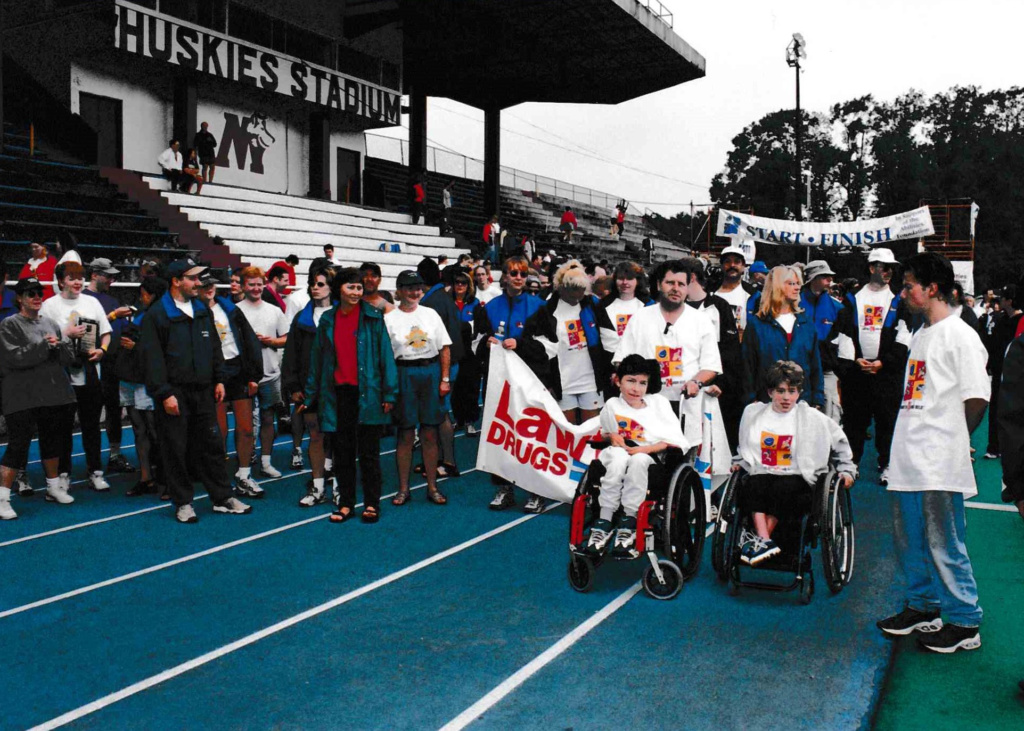
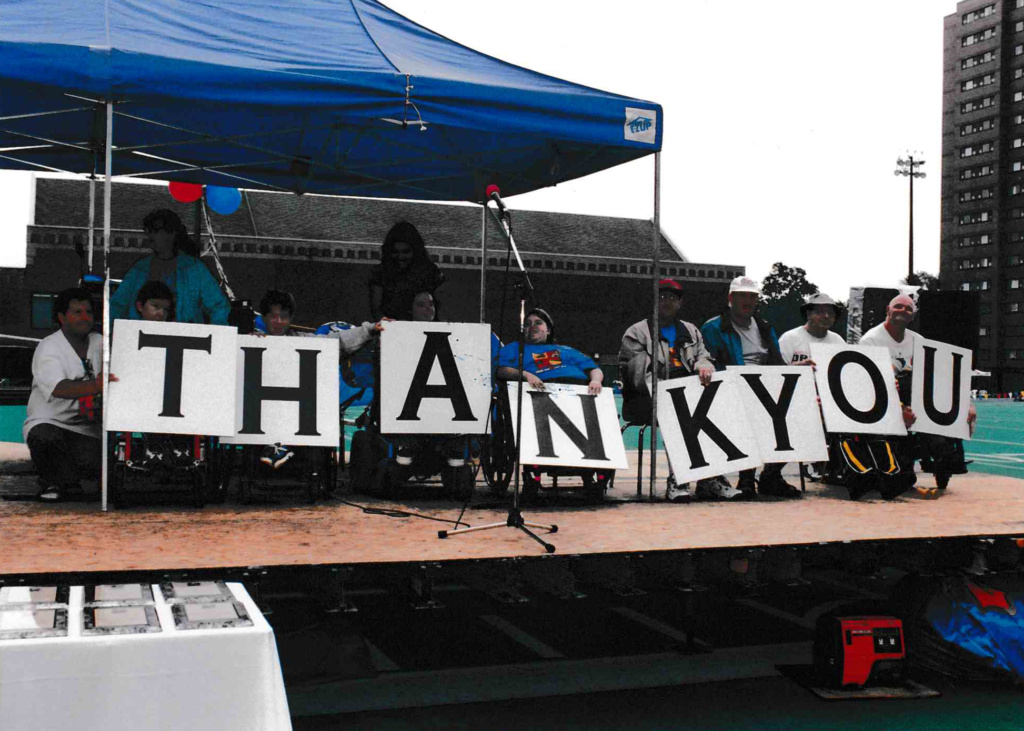
1988 – The organization partners with the Rotary Club of Amherst to offer operations and programming of the fully accessible and barrier-free summer camp, Camp Tidnish.
January 1990 – New Leaf Enterprises becomes a funded partner of the Department of Advanced Education and Job Training in co-operation with the Department of Community Services to provide job coaches to assist people with disabilities in finding meaningful employment in their communities.
1992 – New Leaf Enterprises expands its programs and launches a catering project, run by instructors and trainees of the program.
1993 – New Leaf Enterprises opens “The Coffee Club”, a walk-in and takeout facility providing freshly prepared foods made and served by adults living with disabilities.
2003 – New Leaf Enterprises opened New Leaf Café at the O’Regan’s Toyota dealership on Kempt Road. New Leaf also opened three other “Lunchrooms” on Kempt Road at the Department of Education, Dodge Dealership and the Nova Scotia Housing Authority.
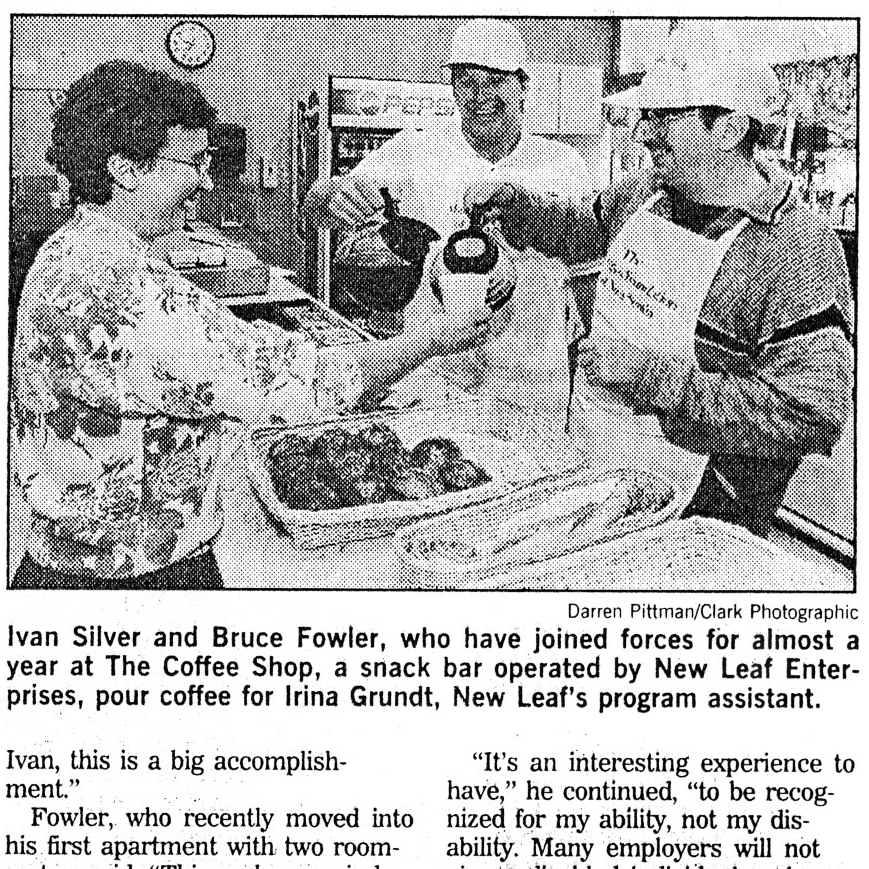
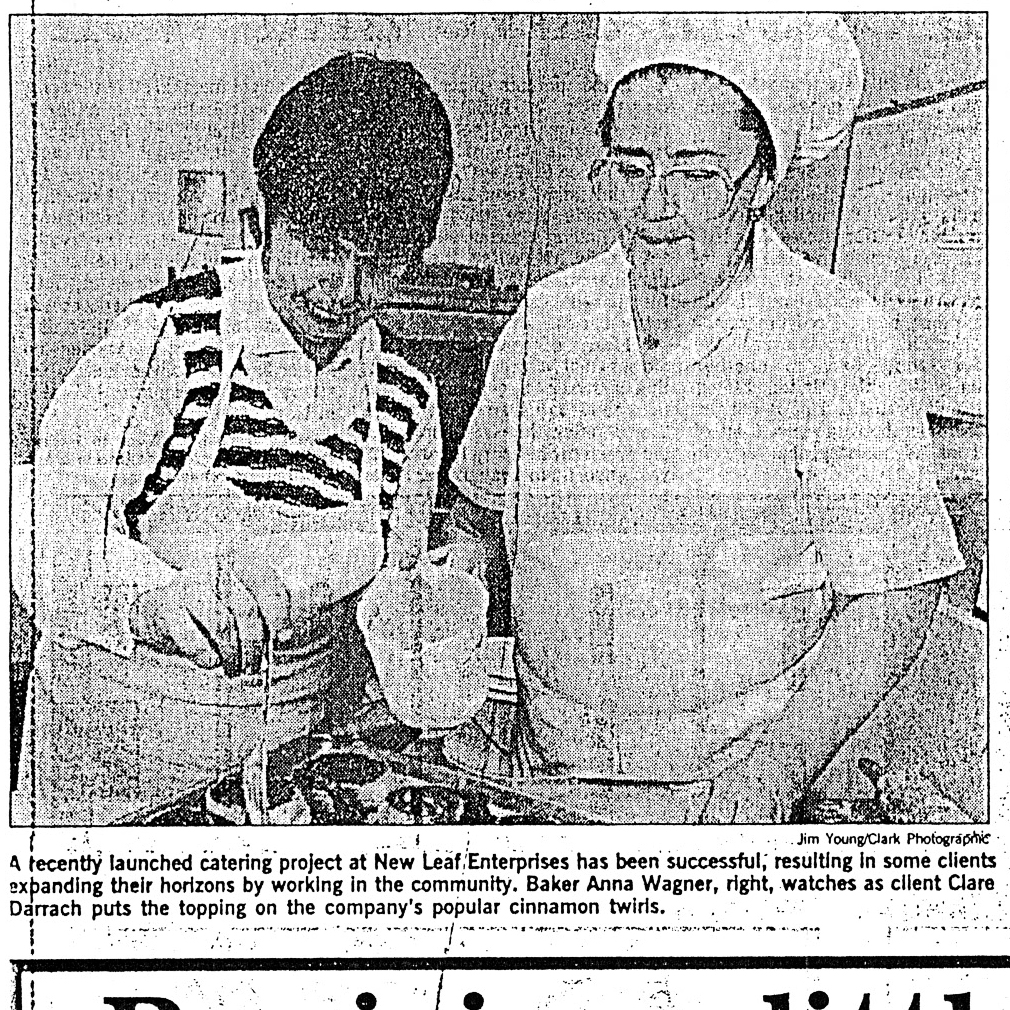
May 2005 – New Leaf Café opens its second location at the Nova Scotia Rehabilitation Centre.
2005 – The organization launches the Wheelchair Recycling Program in partnership with the Department of Community Services. This program is run Assisted Mobility program.
2005 – Halifax Superheroes raise over $80,000 for Nova Scotian children and adults with disabilities at the first-ever national Drop Zone event in Canada.
2005 – The organization launches the Take PART (Physically Accessible Recreation Today) program which provides Nova Scotian children and youth with disabilities an opportunity to participate in recreation and sports programs.
2006 – Camp Tidnish sees $70,000 in renovations to update and improve the accessibility of camper cabin bathrooms and to improve the accessibility of the Camp Tidnish playground.
September 2009 – The organization’s name is formally changed to Easter Seals Nova Scotia.
October 2018 – Easter Seals Nova Scotia moves from its long-time home on Kempt Road in Halifax to its current location in the Burnside Industrial Park, adding over 50% of programming space.
December 2018 – Easter Seals Nova Scotia developed and held the first annual Ability Makers Christmas Market featuring makers with disabilities & social enterprises that employ individuals with disabilities. The Ability Makers Market was developed to provide a fully accessible and barrier-free space for artisans and vendors living with disabilities to showcase their talent and creative skills.
February 2019 – New Leaf Café opens its third location at the Easter Seals Nova Scotia centre in Burnside.
2019 – The Nova Scotia League for Equal Opportunities and Easter Seals Nova Scotia partnered on the Not Without Us project to research the needs of women with disabilities experiencing domestic violence and hear their first-hand stories and solutions.
2020 – Easter Seals Nova Scotia and New Leaf Enterprises launch The Next Step: Youth Employment Support Program, a supported employment program which primarily focuses on persons with disabilities who have recently graduated high school up to the age of 30.
2021 – Our New Take PART programs Learn to Ride in partnership with Serenity Acres Family Ranch and Learn to Dance in partnership with the Maritime Conservatory – School of Dance are launched.

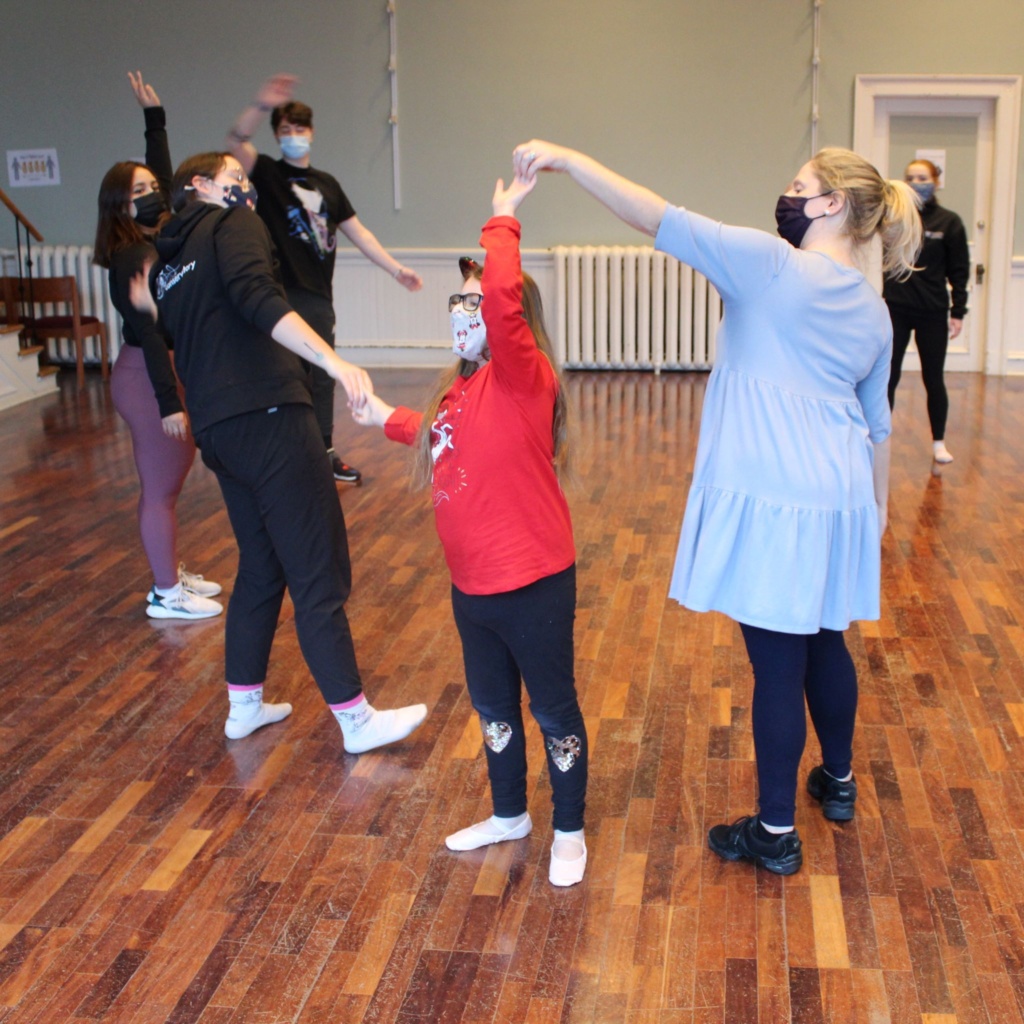
2021 – The Next Step holds the first Reverse Job Fair at our centre on November 5.
2022 – Today, Easter Seals Nova Scotia operates four pillar programs that serve Nova Scotians with disabilities of all ages – New Leaf Enterprises; Take PART; Assisted Mobility and Camp Tidnish.
